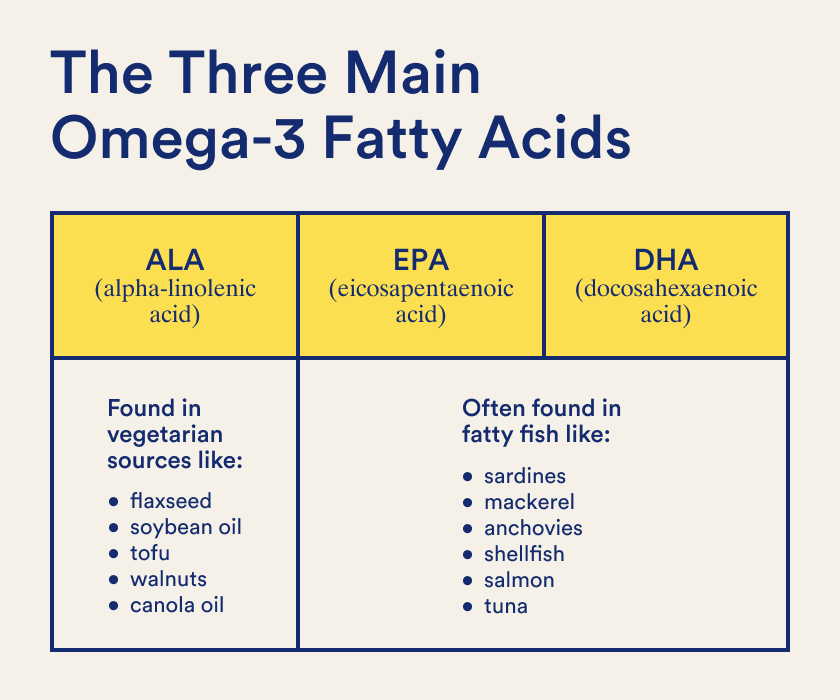Essential Takeaways
• Omega-3 fatty acids are important for supporting brain health and heart health.*
• How much omega-3 is recommended per day? How many grams per day should we aim for? Many of us may be actually falling short when it comes to meeting our suggested omega-3 fatty acid intake. That’s why we suggest focusing on a diet that includes omega-3s, and supplementing with a quality multivitamin or an omega-3 supplement.*
In a clinical study, Essential for Women Multivitamin 18+ was shown to increase omega-3 DHA levels by 41% over 12 weeks—significantly greater than placebo.*† More on this below.
Not sure if your diet includes enough omega-3 fatty acids? There’s a solid chance your suspicion is right—and we commend you for doing the research to support the body’s nutrient needs. If you’re reading this, you’re probably no stranger to the importance of omega-3 fatty acid intake, but in case you need a refresher (or you’re new to the world of nutrition!), here’s some food for thought:*
There are many health benefits of omega-3 fatty acids.
In addition to being key components of our cell membranes, omega-3 DHA & EPA also help support brain health and heart health. It’s important to ensure you’re consuming enough via food and supplementation, since the body can’t efficiently synthesize DHA & EPA on its own.* (1)
But not all essential fatty acids are created equal
The three main omega-3 fatty acids are ALA (alpha-linolenic acid), EPA (eicosapentaenoic acid), and DHA (docosahexaenoic acid). EPA and DHA are often found in fatty fish like sardines, mackerel, anchovies, shellfish, salmon, and tuna, while ALA can be found in vegetarian sources like flaxseed, soybean, tofu, walnuts, and canola oils. (1) According to the NHANES, most children and adults in the United States consume recommended amounts of omega-3 ALA. (1)

Your body converts ALA to EPA + DHA.
The catch? It can only convert a small amount, less than 15 percent—which explains why many dietary supplement companies promote omega-3 fish oil supplements as a source of omega-3 fatty acids. But since fish actually get their DHA from eating phytoplankton, which get it from eating microalgae, we went straight to the source for our multivitamins—all of which are made with omega-3 DHA from vegan algal oil.* (1)













